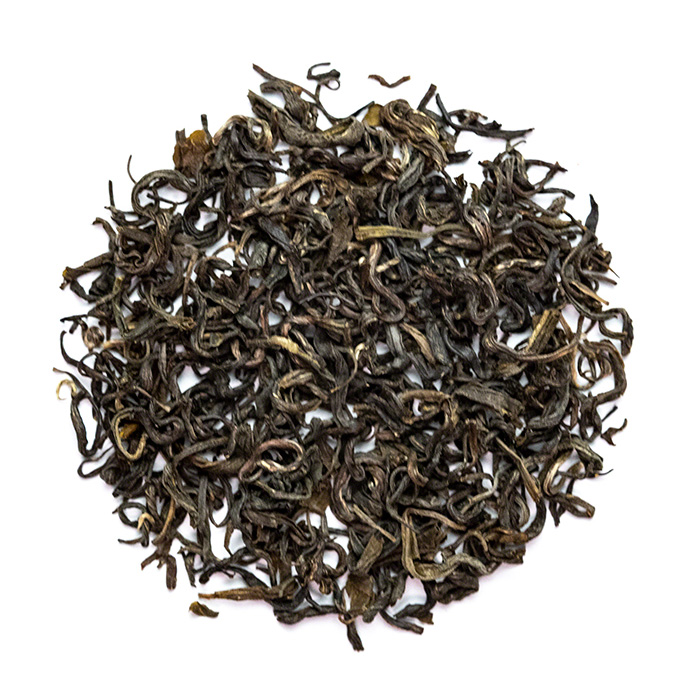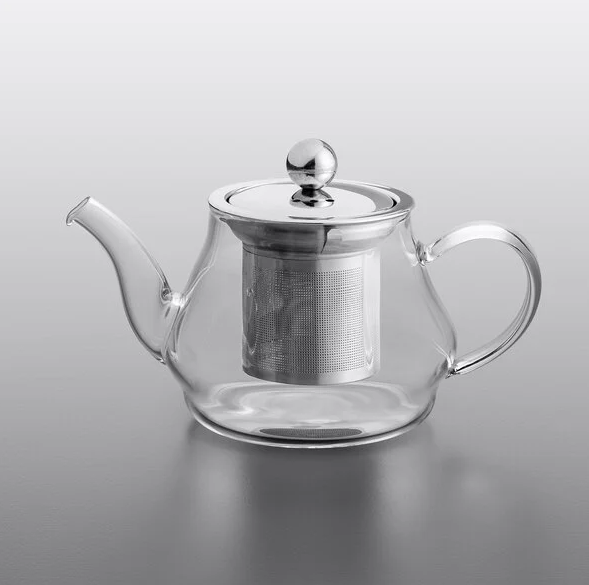Lychee Black Tea Benefits for Health
This post may contain affiliate links. Simple Loose Leaf is a participant in the Amazon Associates Program, an affiliate advertising program designed to provide a means for sites to earn advertising fees by linking to Amazon.com. Looking for the most natural, simple and flavored black tea? Lychee black tea may be the answer. This tea is one of the simplest, sweetest, naturally flavored black teas in the world. Learn what are the potential benefits and how to brew a perfect cup of this delicious tea.
What is lychee tea?
Lychee black tea is a special type of scented tea from China, mostly from the Guangdong and Guangxi provinces. It’s a black tea scented with real lychee fruit, by roasting lychees with tea leaves. Lychee is a small fruit with white flesh and pink peel from a lychee tree. Lychee peels easily, and it’s eaten raw. It’s native to Guangdong province and grown in other Asian countries too. The tea, however, doesn’t contain any fruit pieces – only pure black tea leaves with a sweet fruity lychee flavor. Lychee has a sweet, tropical flavor and adds a wonderful note to rich Chinese black tea.What is scented tea?
There are a few ways of adding flavor or scent to tea – by adding natural or artificial flavors, by blending real tea with other ingredients, or by scenting it with real flowers or fruits during production. Scenting is the common way of making tea in Asia, while blending is the most popular way in the western countries. One of the most well-known scented teas is green Jasmine tea.History of lychee tea
Lychee became popular during Tang dynasty, more than 1000 years ago[1]. The exact origin of lychee tea is not known. It could be that it was created when lychees and black tea got mixed during the transport. Today, lychee black tea is still very popular and widely available. Green lychee tea is also available and has a lighter and fresher flavor.
Green tea scented with lychee
Health benefits of Lychee black tea
Lychee black tea may offer more than just a delicious flavor. Numerous health benefits may be linked to this tea. Black tea contains polyphenols, caffeine, L-theanine and other compounds.1. Antioxidant activity
Black tea contains antioxidants, thearubin and theaflavin. Studies showed that they may provide high antioxidant activity, similar to green tea. Antioxidants may help fight free radicals, reduce oxidative stress, and protect the cells in our body[2]. High levels of free radicals and damaged cells lead to many chronic diseases[3].2. Energy boost
Lychee black tea contains caffeine that may help boost your energy. Although levels are much lower than in a regular cup of coffee, avoid it if you are sensitive to caffeine or before sleeping time. To extract less caffeine, use cooler water and don’t over-steep the leaves.3. Aiding weight loss
A cup of lychee black tea could be a great drink of choice before exercise. Black tea may help with your weight loss goals in a few ways. Although it’s not a miracle drink, a cup (or three[4]) of tea may help with turning fat into energy faster and prevent the accumulation of new fat[5]. It will also provide caffeine that may help with energy boost and focus needed for gym sessions.4. Stabilising blood sugar
Lychee black tea may be one of the best choices for people with type 2 diabetes. Although it’s unsweetened, it has a strong sweet flavor. Studies showed that black tea in general could help lower blood sugar and stabilise insulin[6].5. Protecting the heart
Research showed that black tea may reduce the risk of heart disease[7] and heart attacks and regulate blood pressure[8].6. Anticancer activity
Drinking this tea may provide an anticancer activity too. Studies showed that polyphenols in black tea may be beneficial for preventing and treating some types of cancer.[9]7. Protecting the bones
Drinking tea regularly may help protect the bones and prevent bone-related diseases such as osteoporosis[10].How to brew lychee black tea
You can brew scented tea in two different ways – using a regular infuser or a teapot, or using a smaller Chinese teapot or a gaiwan and re-steeping the same leaves multiple times. Bring fresh spring water to a boil. Preheat your teaware by pouring hot water in and out. Wait till the water cools down to 200°F. Use about one teaspoon of tea leaves per cup of water and steep for 3-5 minutes. If you want to re-steep the same leaves more times and get a more intense flavor, use about 2 teaspoons of tea leaves (equals 2-5 grams of tea) per 100-150 ml of water. Preheat the teapot by pouring hot water in and out. The first steep should be very short – about 20 seconds. Increase the steeping time by 10-30 seconds for subsequent infusions. Lychee black tea is great for making ice tea too. Brew a stronger cup of lychee hot tea, dilute it with some water and serve over ice. Alternatively, cold brew overnight in the fridge.Disclaimer: This article is for informational purposes only. It’s not intended to replace medical advice, diagnosis or treatment. Every person is different and may react to different herbs and teas differently. Never use teas or herbs to treat serious medical conditions on your own. Always seek professional medical advice before choosing home remedies.
References:
[1] https://www.chinadaily.com.cn/life/2008-10/24/content_11569594.htm [2] https://www.nature.com/articles/1602489 [3] https://www.ncbi.nlm.nih.gov/pmc/articles/PMC6512146/ [4] https://www.ncbi.nlm.nih.gov/pmc/articles/PMC6512146/ [5] https://www.ncbi.nlm.nih.gov/pmc/articles/PMC6273558/ [6] https://www.ncbi.nlm.nih.gov/pmc/articles/PMC6512146/ [7] https://www.ncbi.nlm.nih.gov/pubmed/16855537 [8] https://www.ncbi.nlm.nih.gov/pmc/articles/PMC4661527/ [9] https://www.ncbi.nlm.nih.gov/pmc/articles/PMC6512146/ [10] https://www.ncbi.nlm.nih.gov/pmc/articles/PMC5728912/
More from:
SLL




Leave a comment